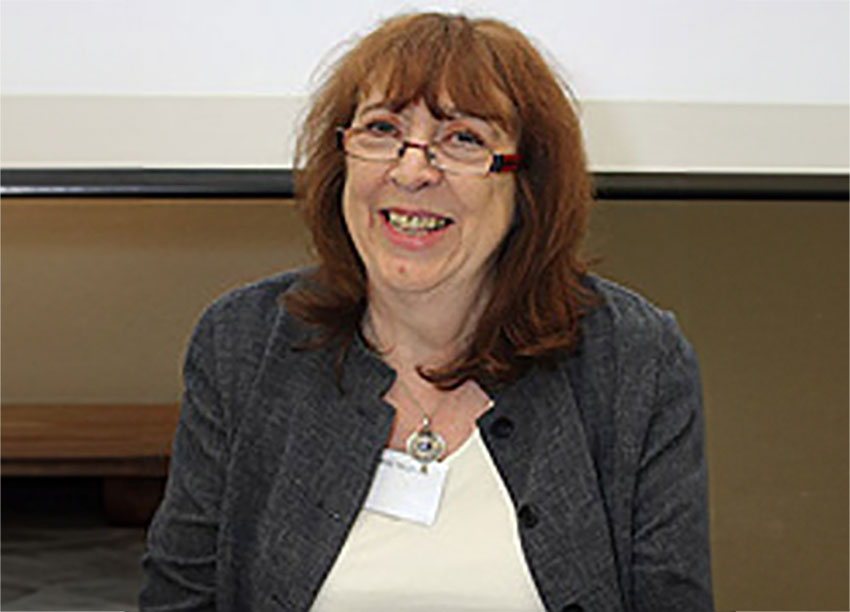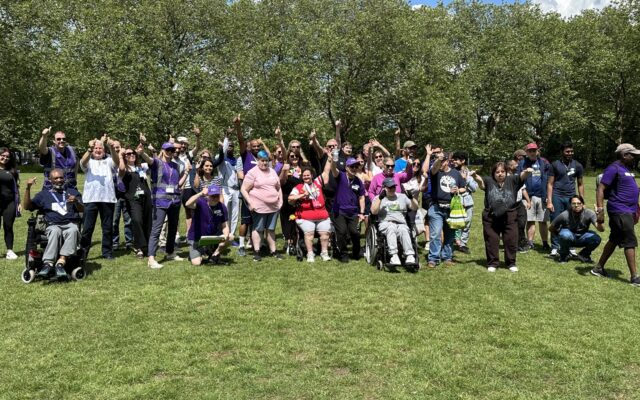Although I knew Rose had been suffering from lung cancer for several years, it was still a shock when I got the news she had died. She had been working as though nothing was wrong for so long that I had almost forgotten she was ill. I’m told she was even emailing about people with learning disabilities from her hospital bed the day before she died.
Groundbreaking beginnings
To understand Rose’s strong commitment to people with learning disabilities, we need to go back to the 1970s when a group of people in the north west set up a charity to give people coming out of long-stay hospitals their own homes in the community. At the time, there was no model for this initiative for adults – it was really groundbreaking.
The group included activists David and Althea Brandon. The charity was called Integrate and it strived to live up to its name by being truly committed to people being part of their community as equal citizens. Rose was its first appointment as chief executive. Althea says: “Rosemary was the outstanding candidate and she proved an inspired choice. I admired the way she combined boldness with a sensible approach.” Rose seized the opportunity this gave her to put into practice all the principles she had followed during her career as a social worker.
David and Rosemary were linked by not just the values they shared but also the challenges they took up. David, who died in 2001, was a fierce advocate on behalf of both people with learning disabilities and those with mental health problems. He was the first editor of Community Living when it was launched in 1987. Rose became its publisher in 2011 at a difficult time for the magazine. The role presented Rose with another opportunity to put her values and experience into practice.
Since I launched the magazine, it has gone through many ups and downs, surviving mainly due to the support of its loyal readers and charity sponsors. Elfrida purchased it in 2005 and it flourished for several years under the direction of Elfrida’s then chief executive, Seán Kelly. When Elfrida found it could no longer support the magazine, there was real concern about its future. But then Rose, who had joined the editorial board a few months earlier, came to its rescue, pulling together two charities, Integrate and Linkability, to join its existing sponsor Three Cs to form a charity dedicated to publishing the magazine, CL Initiatives. (They were later joined by Respond and the Westminster Society.) This was another example of Rose’s capacity to recognise a need and to take action to address it.
Elfrida continued to support the magazine both editorially and by providing premises for meetings (later provided by Respond in London). Under its current editor, Simon Jarrett, and a committed board of trustees, the magazine now looks forward to a stronger future.
Legacy
Sue Pemberton, who took over as chief executive of Integrate on Rose’s retirement, expresses warm appreciation of the influence she had on the organisation. “The values of Integrate are Rose’s legacy – from the beginning, her determination and beliefs that there could be, indeed there was, something better for people with learning disabilities than institutional living – their own homes in ordinary streets, their own front door, the key to their own home and the same life opportunities as other members of the community, playing active roles in their local neighbourhoods,” she says.
Jo Adshead, who has taken over as Community Living publisher while continuing in her role as chief executive of Linkability, spoke movingly about Rose at her funeral in January. “She captured the imaginations of so many of us, including me. She engaged us all from her networks and friendships, people who need support, professionals, parents and family members – all of us with different motivations, skills, knowledge and passions all for different reasons. Her enthusiasm was infectious.” Rose and I worked together more or less affably though we had our moments – notably when we disagreed about the use of the subjunctive. But I am sure Community Living would not have survived without her input. As well as all her vast knowledge, she invested both her time and her own money in it. Although the term “workaholic” truly did describe her, she was not all about work. She had many friends with whom she enjoyed visits to European cities, and she often travelled with a group of old school friends who met up every year.
Seán, who is a member of the magazine’s editorial board, says: “I think of her as confident, cheerful and deeply committed with an underlying optimism despite a necessary layer of cynicism about some of the less progressive actions of commissioners. “Rose was a wonderful, remarkable woman. Her impact on the world of learning disabilities was incalculable.” If she is enjoying an afterlife somewhere (hopefully with her beloved husband Bruce who died suddenly and tragically at the age of 49), I am sure she will be tapping away on her tablet from which she was inseparable.





